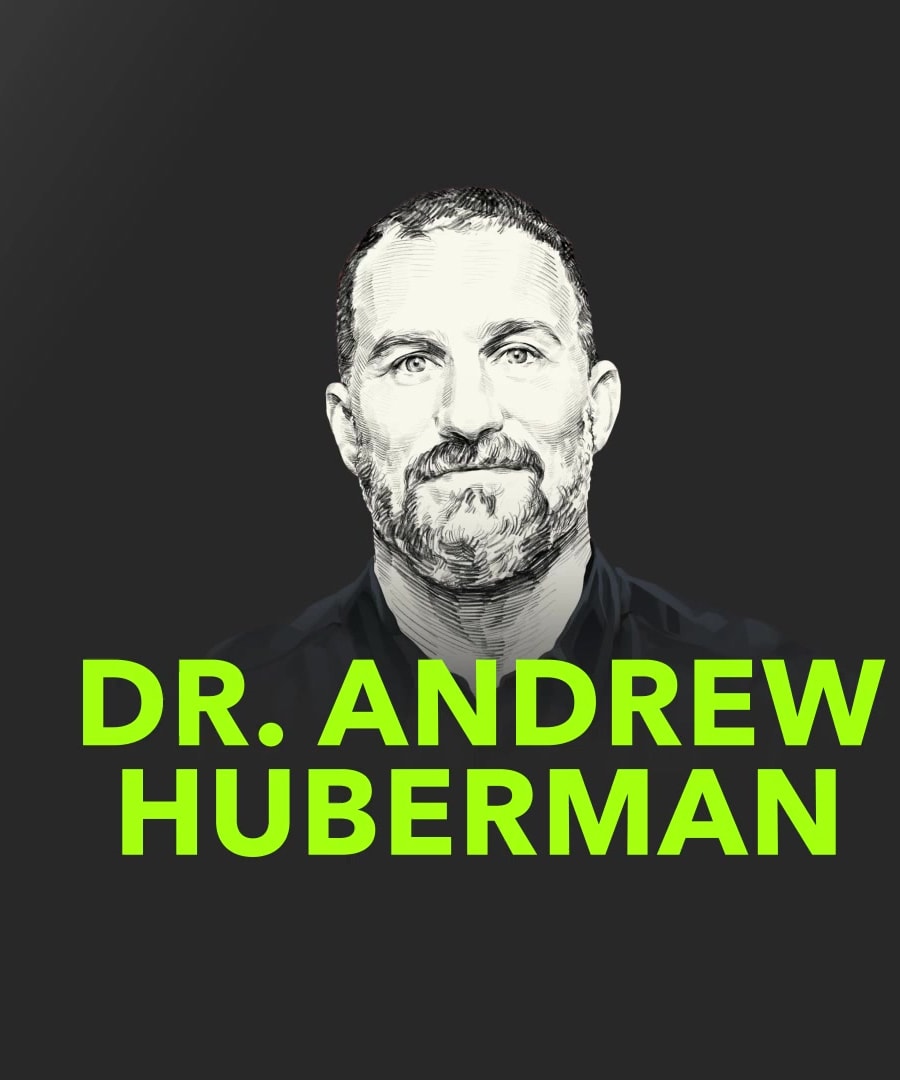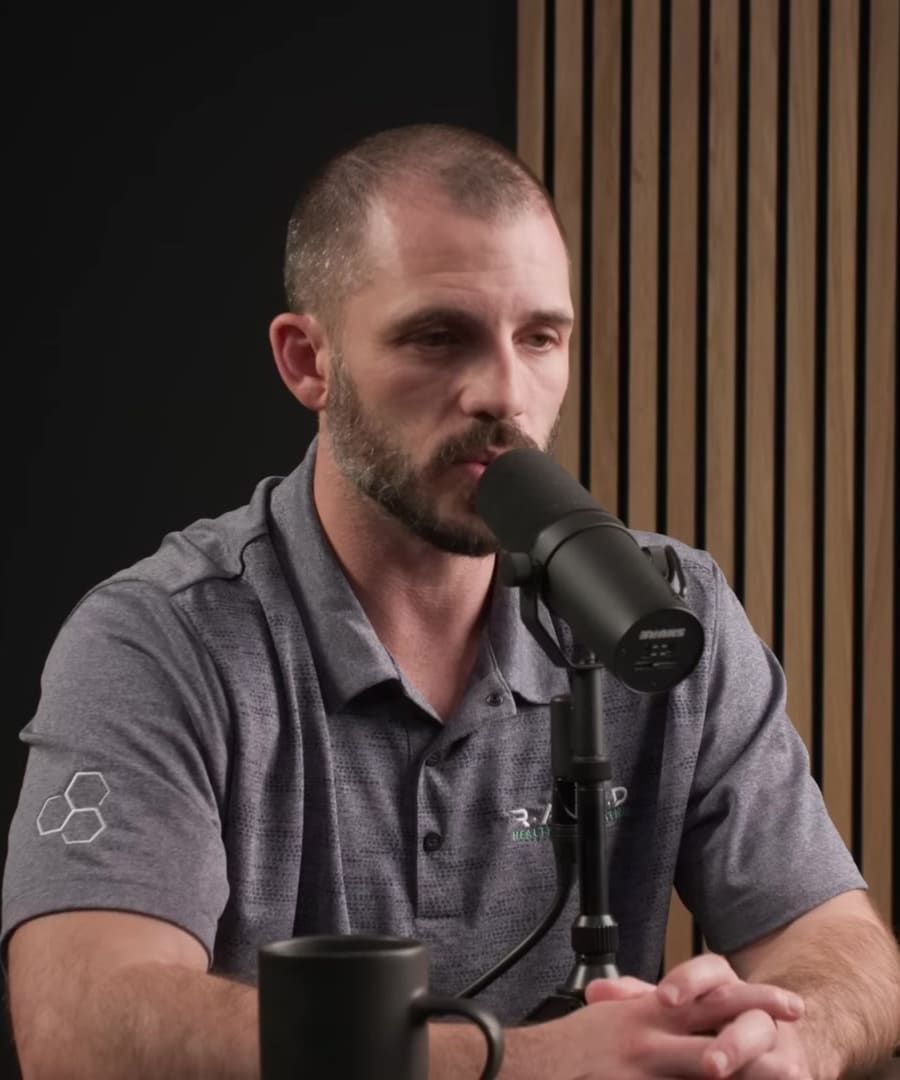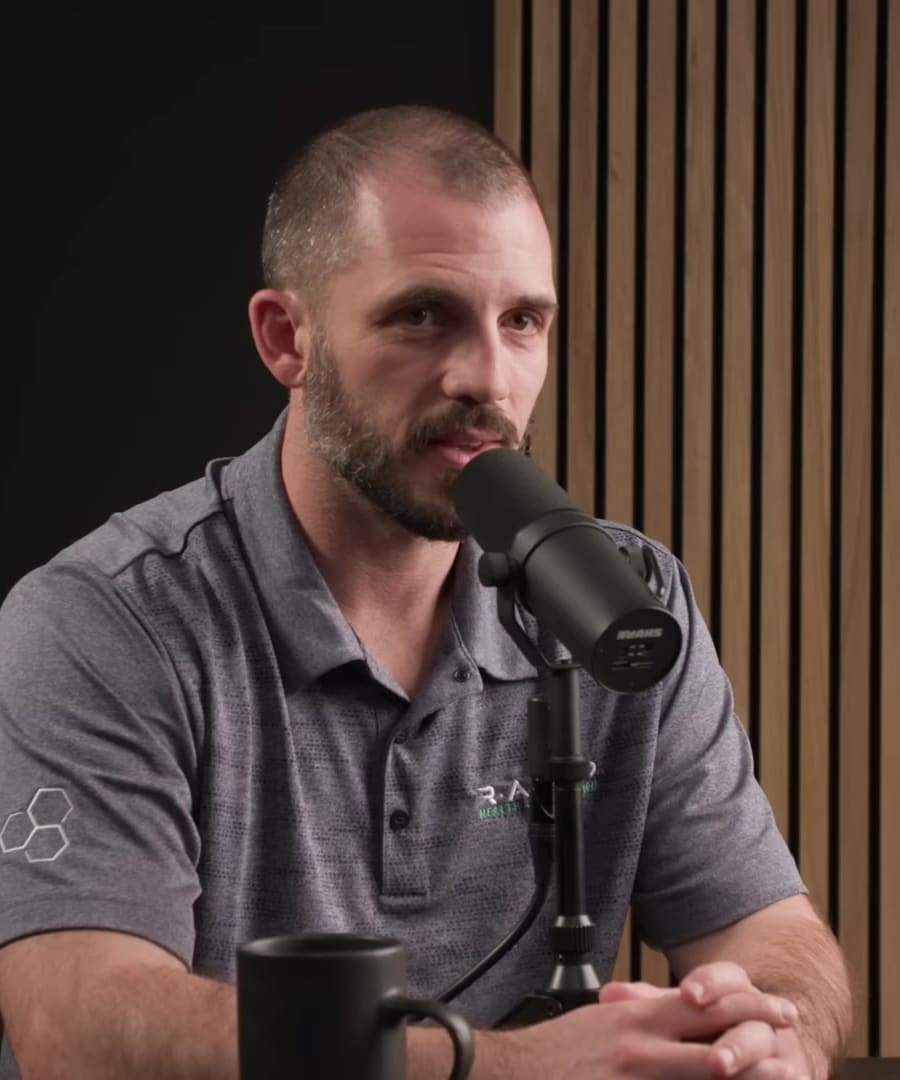I am 40 years old, 5'11, fairly strong but also carrying a lot of fat. What are the most impactful things I can do in regards to sleep, supplements, activities, etc. to increase testosterone, decrease cortisol, and be healthier to lose weight and get in the best shape of my life
Sources:
To improve testosterone levels, decrease cortisol, lose weight, and get into the best shape, consider the following recommendations from the Huberman Lab:
-
Optimize Sleep: Sleep is a foundational factor that indirectly affects testosterone levels. Ensure you get adequate, quality sleep 1.
-
Manage Stress: Chronic stress should be kept to a minimum as it indirectly affects hormones 1.
-
Exercise: Engage in resistance training and balance it with caloric restriction to address weight loss and hormone health. Long training sessions can be counterproductive, so train hard but not too long 2.
-
Diet: Consistently adhere to healthy eating habits and consider caloric restriction to manage weight effectively 2.
-
Supplements:
- Tongat Ali: Taking 400 milligrams of Tongat Ali per day may reduce sex hormone binding globulin and increase testosterone levels. It tends to work better after continuous use over a few months. It should be taken early in the day due to its stimulant effect 3.
- Phdogia Agrestis: Acts as a luteinizing hormone mimic, stimulating the testes to produce more testosterone 3.
-
Lifestyle Interventions:
- Diet and exercise are crucial, with resistance training being particularly beneficial for hormone health.
- Manage stress, which plays a role in cortisol levels.
- Prioritize sleep and establish a consistent sleep pattern.
- Get regular sunlight exposure for overall well-being.
- Maintain spiritual health, which can deeply influence your mental and physical state.
Finally, while incorporating supplements, ensure that any significant changes in lifestyle or supplement use are discussed with a healthcare professional to manage any potential impacts 4.
To optimize for the long-term, uncover and address the root causes of any health challenges, rather than relying solely on supplements or quick fixes. Implement the aforementioned adjustments gradually to establish effective and sustainable health habits.
RELATED QUESTIONS-
Please provide me with detailed sleep optimization tips.
Sources:
To optimize your sleep for better overall health and function, you can apply the following practical tools and strategies based on the information provided by in various episodes of the :
-
Light Exposure:
- Aim to get bright light exposure early in the day to set your circadian rhythm 1.
- Dim the lights and reduce screen time as evening approaches to signal your body that it's time to wind down.
-
Temperature Regulation:
- Keep your bedroom cool to promote better sleep. A cool environment mimics the natural drop in body temperature that occurs during sleep.
-
Consistent Sleep Schedule:
- Try to go to sleep and wake up at the same times every day, even on weekends, to reinforce a regular sleep-wake cycle 2.
-
Diet and Exercise:
- Align the timing of exercise and meals with your sleep schedule. Avoid exercising and eating large meals too close to bedtime.
-
Avoid Stimulants:
- Limit the intake of caffeine and avoid alcohol before bedtime. Caffeine can disrupt sleep if consumed too late in the day 3.
-
Supplements:
- Supplements like magnesium threonate, apigenin, and theanine may help some people improve their ability to fall and stay asleep. Always consult your physician before beginning a new supplement regimen 2.
-
Digital Tools:
- Non-sleep deep rest (NSDR) scripts and clinically-supported self-hypnosis techniques available through apps like Reveri can promote deep relaxation and improve sleep 4.
-
Myofunctional Therapy:
- If you experience snoring or REM sleep disturbances, tongue exercises known as myofunctional therapy may help 5.
-
Sleep Environment:
- Reserve the bed for sleep and intimacy only, creating a strong psychological association between the bed and sleeping 5.
-
Dealing with Sleep Issues:
- If you wake up during the night, practices like yoga nidra and certain hypnosis techniques may help you fall back asleep more easily 3.
Remember, the best approach to sleep optimization involves a combination of behavioral, nutritional, and supplemental strategies where needed. Reviewing these strategies and selecting the ones most applicable to your schedule and lifestyle might take some experimentation to get right. For further detailed sleep tools and methods, including the logic behind each tool and how to apply them for a personalized sleep toolkit, you may refer to the . Furthermore, a comprehensive review of sleep and its importance for various aspects of health is covered in the .
RELATED QUESTIONS-
I am 40 years old, 5'11, fairly strong but also carrying a lot of fat. What are the most impactful things I can do in regards to sleep, supplements, activities, etc. to increase testosterone, decrease cortisol, and be healthier to lose weight and get in the best shape of my life
- RELATED QUESTIONS
Please provide me with detailed sleep optimization tips.
- RELATED QUESTIONS








